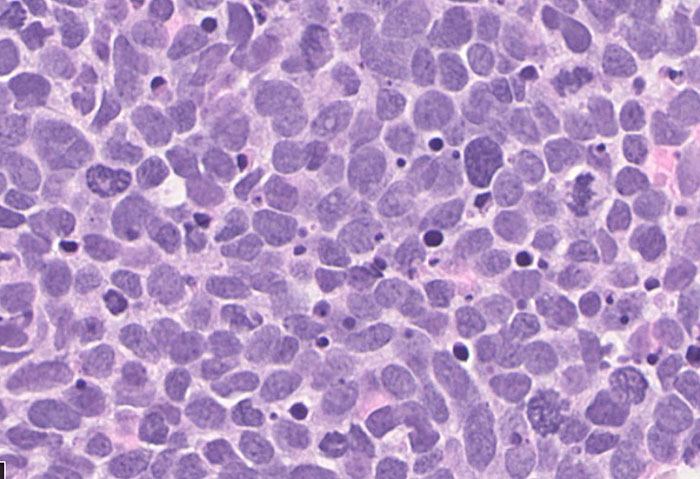Drug testing approach uncovers effective combination for treating small cell lung cancer
Researchers from the National Institutes of Health have identified and tested a drug combination that exploits a weakness in small cell lung cancer (SCLC), an aggressive, dangerous cancer. The scientists targeted a vulnerability in how the cancer cells reproduce, increasing already high levels of replication stress — a hallmark of out-of-control cell growth in many cancers that can damage DNA and force cancer cells to constantly work to repair themselves. In a small clinical trial, the drug duo shrank the tumors of SCLC patients. The team reported its findings April 12 in Cancer Cell.
While many patients with small cell lung cancer initially respond to chemotherapy, they lack an effective follow-up treatment. These patients usually live a matter of weeks after their first treatment stops working and their disease returns. Scientists at NIH’s National Cancer Institute (NCI) and National Center for Advancing Translational Sciences (NCATS) teamed up to find another option to treat these cancers, which are part of a larger group of similar diseases called small cell neuroendocrine cancers.
“We wanted to identify novel drugs and combinations to leverage this vulnerability therapeutically,” said NCI’s Anish Thomas, M.D., who led the study. “We saw potential opportunities because the armamentarium of new chemicals and drugs was rapidly expanding.”
This page was last updated on Friday, January 21, 2022
